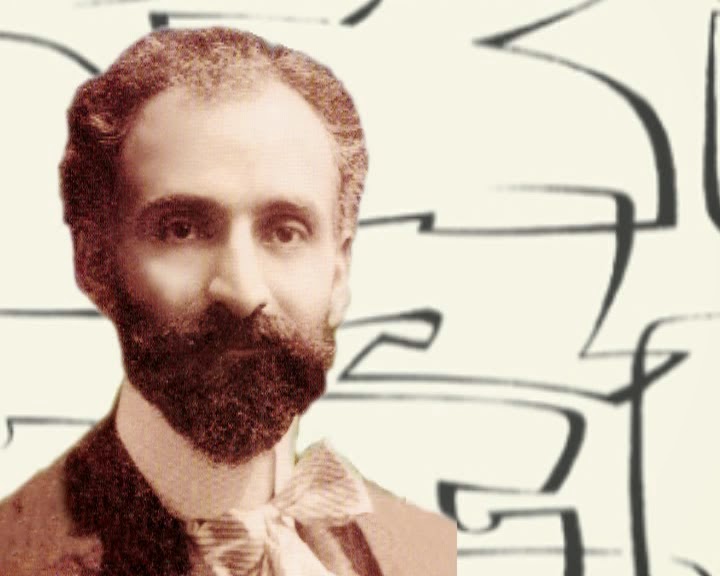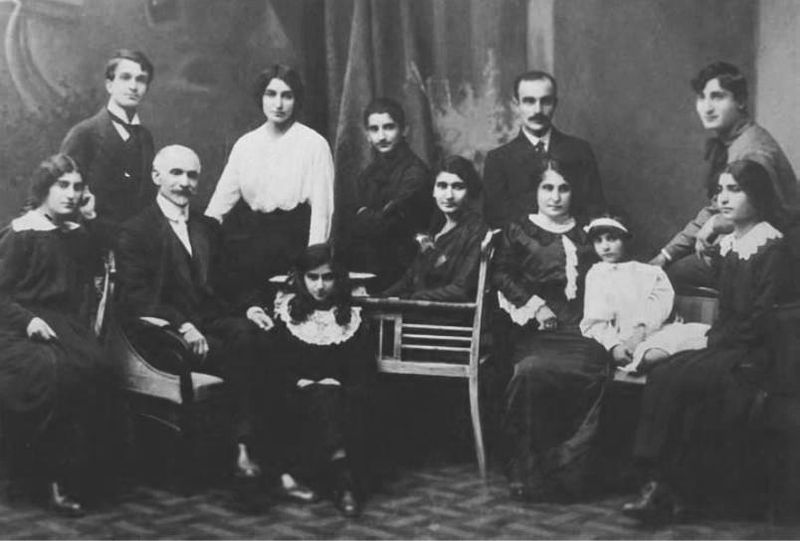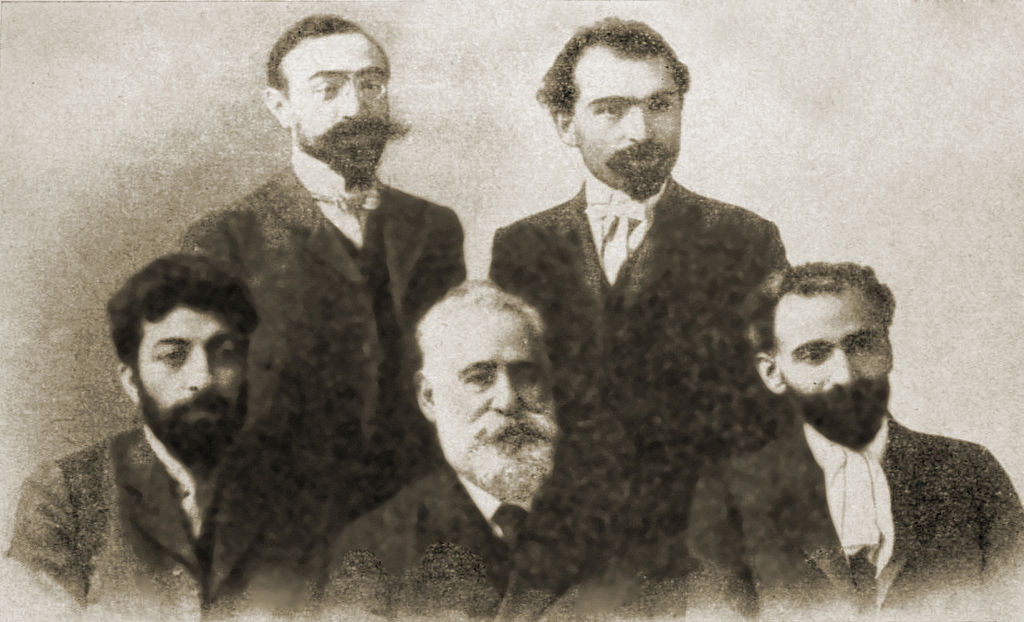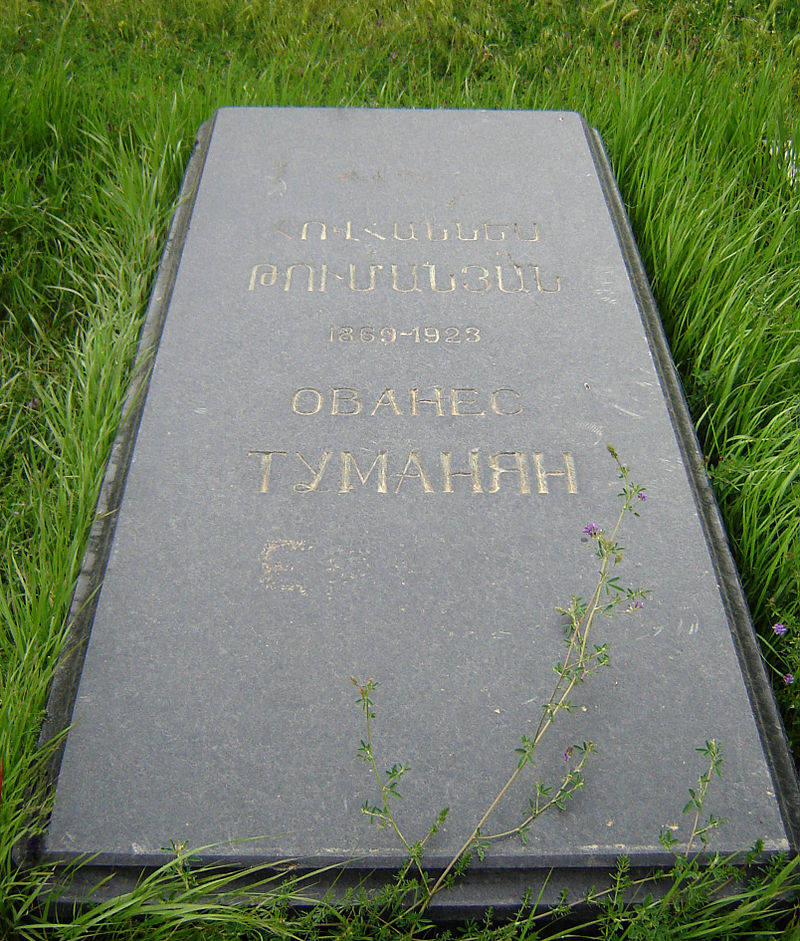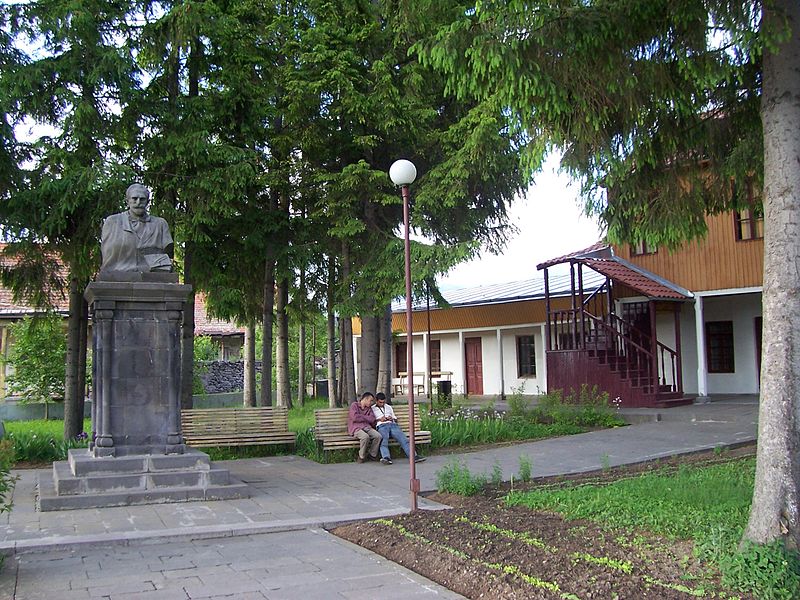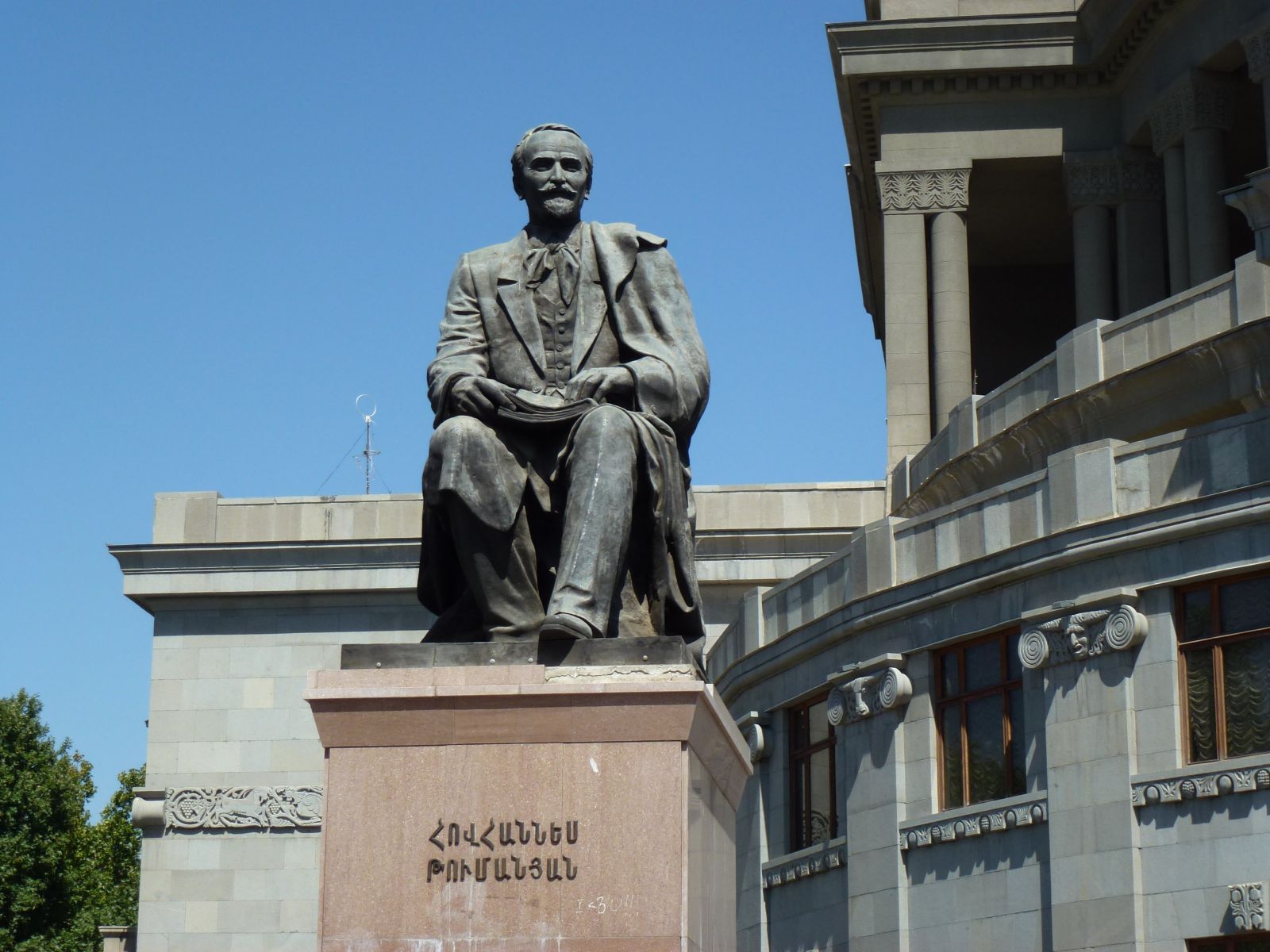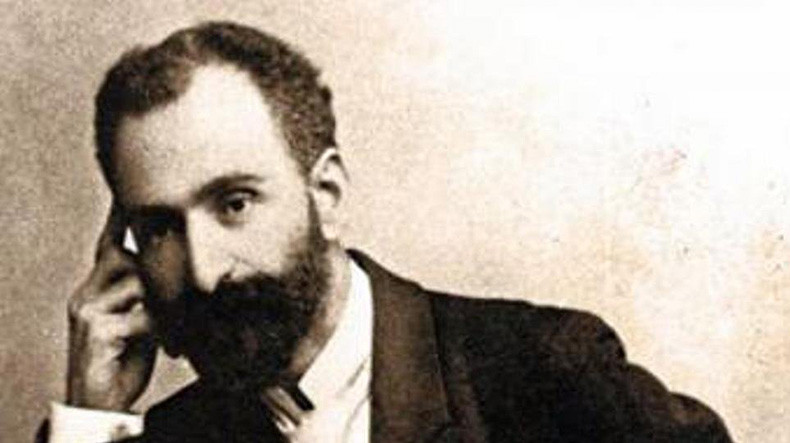
Today marks prominent writer Hovhannes Tumanyan’s 150th birthday
19 February marks the 150th birthday anniversary of renowned Armenian writer Hovhannes Tumanyan. The great poet’s 150th birthday is included in the UNESCO Calendar of anniversaries of eminent personalities and important events of 2018-2019.
Jubilee events marking Tumanyan’s birthday will kick off today in Yerevan, Tbilisi and Dsegh, simultaneously.
Hovhannes Tumanyan was born in 1869 in the village of Dsegh, Tiflis Governorate, Russian Empire (now Lori Province, Armenia). His father, Aslan, was the village priest known by the name Ter-Tadevos. His mother, Sona, was an avid storyteller with a particular interest in fables. Young Tumanyan was the oldest of eight children.
From 1877 to 1879, Tumanyan attended the parochial school of Dsegh. From 1879–1883 he went to a school in Jalaloghly. Tumanyan moved to Tiflis in 1883, where he attended the Nersisyan School from 1883–1887. He wrote his first poem at the age of 12, while studying in Jalaloghly school. He lived at the teacher's house for a while and fell in love with the teacher's daughter Vergine. Since 1893, Tumanyan worked for Aghbyur, Murtch, Hasker and Horizon periodicals and also was engaged in public activism.
In 1899, Tumanyan came up with an idea of organizing meetings of Armenian intellectuals of the time at his house on 44 Bebutov Street in Tiflis (present-day Amaghleba 18, in Sololaki). Soon it became an influential literary group, which often gathered in the garret of Tumanyan's house. Vernatun means garret in Armenian, which was the name the group was referred to. Prominent members of the collective were Avetik Isahakyan, Derenik Demirchyan, Levon Shant, Ghazaros Aghayan, Perch Proshyan, Nikol Aghbalian, Alexander Shirvanzade, Nar-Dos, Vrtanes Papazyan, Vahan Terian, Leo, Stepan Lisitsyan, Mariam Tumanyan, Gevorg Bashinjagyan and many other significant Armenian figures of early 20th century. With some pauses, it existed until 1908.
In 1912 Tumanyan was elected the president of the Company of Caucasus Armenian Writers.
In the fall of 1921, Tumanyan went to Constantinople to find support of Armenian refugees. After months spent there, he returned ill. After surgery in 1922, he started to get better. But in September, Tumanyan's disease started to persist again. He was transferred to a hospital in Moscow, where he died on March 23, 1923.
Tumanyan is usually regarded in Armenian circles as "All-Armenian poet". He earned this title when the Catholicos of Armenia had ordered that Armenian refugees from the west not enter certain areas of his church and house, since he is considered to be "The Catholicos of all Armenians". Tumanyan in response decried that decision claiming that the refugees could seek relief in the Catholicos' quarters under order of "The Poet of all Armenians".
Tumanyan wrote poems, quatrains, ballads, novels, fables, critical and journalistic articles. His work is simple, natural and poetically inspired at the same time. It is not by mere chance that dozens of phrases and expressions from Tumanyan's works have become a natural part of people's everyday language, their sayings, adages, and maxims.
Many films and animated films have been adapted from Tumanyan's works. Two operas – Anush (1912) by Armen Tigranian and Almast (1930) by Alexander Spendiaryan – were written based on his works.
